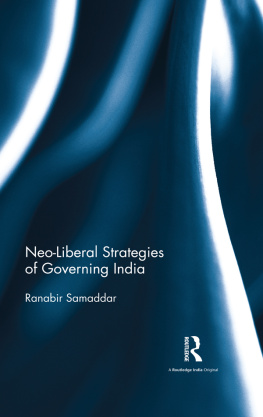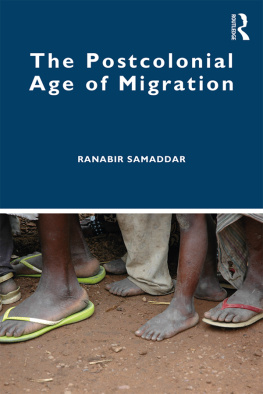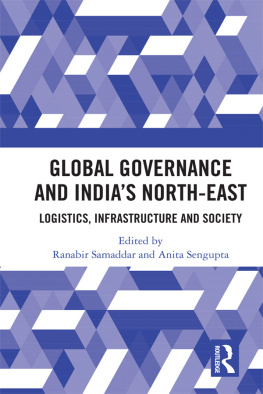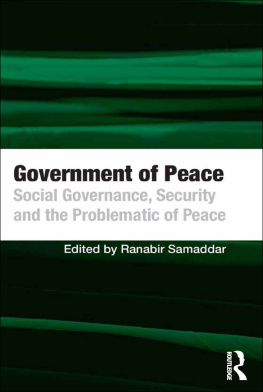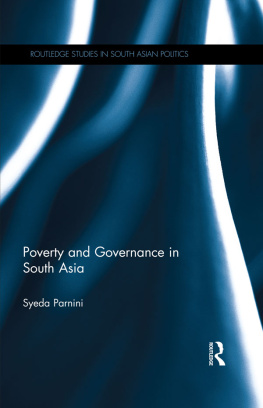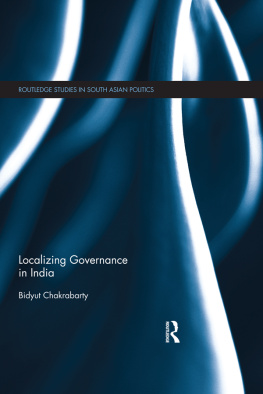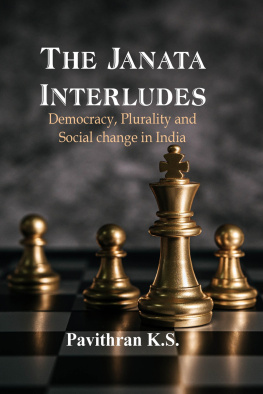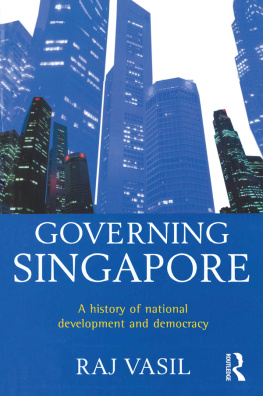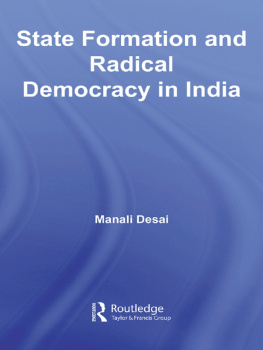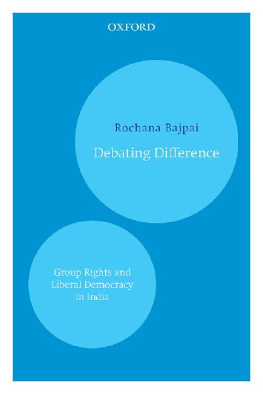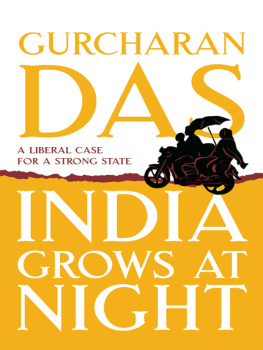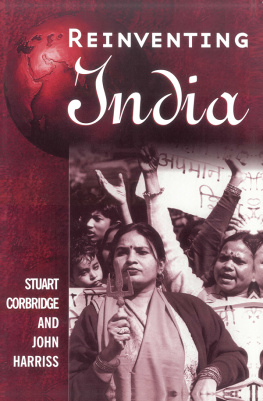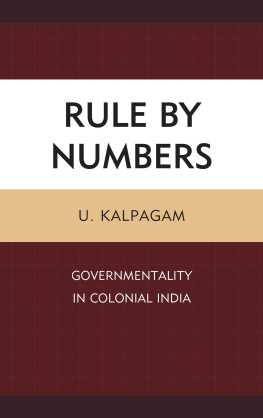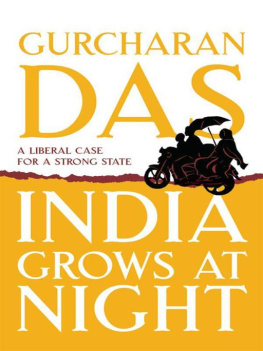Neo-Liberal Strategies of Governing India
Neo-Liberal Strategies of Governing India and its companion volume Ideas and Frameworks of Governing India tell the story of governance in independent India and address the critical question: how is a post-colonial democracy governed? Further, they attempt to understand why the process of governing a post-colonial democracy, particularly in the neo-liberal age, should be studied as the central question within the history of post-colonial democracy. The volumes offer hitherto unexplored analyses of governance political and ideological aspects along with technological characteristics in a historical framework.
This volume discusses:
- a contemporary history of democracy ways of governing, resistance and their engagement
- political economy, development and neo-liberal governance
- governance as a strategy of accommodating claims and facilitating accumulation.
In breaking new ground in the study of what constitutes the political subject, these volumes will be indispensable to scholars, researchers and students of politics, public administration, development studies, South Asian studies and modern India.
Ranabir Samaddar is the Distinguished Chair in Migration and Forced Migration Studies at Calcutta Research Group, India. Among foremost critical theorists, he has worked extensively on issues of forced migration, dialogue, nationalism and post-colonial statehood in South Asia, and new regimes of technological restructuring and labour control. His significant interventions on justice, rights, peace, nation-state and critical post-colonial thought include The Politics of Dialogue (2004), The Materiality of Politics (2007) and The Emergence of the Political Subject (2009). His co-authored work Beyond Kolkata: Rajarhat and the Dystopia of Urban Imagination (2013) examines new town and accumulation in the context of urban post-colonial capitalism. His co-edited volumes include Political Transition and Development Imperatives in India (2012), New Subjects and New Governance in India (2012) and Conflict, Power, and the Landscape of Constitutionalism (2008).
First published 2016
by Routledge
2 Park Square, Milton Park, Abingdon, Oxon OX14 4RN
and by Routledge
711 Third Avenue, New York, NY 10017
Routledge is an imprint of the Taylor & Francis Group, an informa business
2016 Ranabir Samaddar
The right of Ranabir Samaddar to be identified as author of this work has been asserted by him in accordance with sections 77 and 78 of the Copyright, Designs and Patents Act 1988.
All rights reserved. No part of this book may be reprinted or reproduced or utilised in any form or by any electronic, mechanical, or other means, now known or hereafter invented, including photocopying and recording, or in any information storage or retrieval system, without permission in writing from the publishers.
Trademark notice: Product or corporate names may be trademarks or registered trademarks, and are used only for identification and explanation without intent to infringe.
British Library Cataloguing in Publication Data
A catalogue record for this book is available from the British Library
Library of Congress Cataloging-in-Publication Data
A catalog record has been requested for this book.
ISBN: 978-1-138-67470-7 (hbk)
ISBN: 978-1-315-56090-8 (ebk)
Typeset in Sabon
by Apex CoVantage, LLC
Contents
This companion volume is written in the framework of a contemporary history of democracy. The history of democracy is a history of particular ways of governing, ways of resistance and the dynamics of the interface of the two. This is the reason that this book written predominantly as a contemporary account of governing India is, to a large measure, also an account of post-colonial political democracy in the neo-liberal time. This is perhaps true of all democracies only that in the countries of the capitalist West, they mostly do not recognize it and see it as one of enlightened governance marked by guarantee of rights, private property and market institutions, while here in India as in many other post-colonial countries, we openly acknowledge that the story of democracy is one of power, domination, representation, conflict, resistance and popular claim-makings, because nothing explains why things happen in India in the way they do without reference to popular politics and without an understanding of how capitalism has developed in post-colonial conditions. This book adopts such a critical view.
In this book the history of governing is seen therefore as consisting of two principal elements: (a) the mutually constitutive relationship between rulers and the ruled based on norms, rules, rights and popular claims; and (b) governance as a strategy of creating conditions of accumulation and providing the institutional matrix of these conditions. If attention to the need for a historical framework for the study of governance is a feature of the book, its other feature, as mentioned earlier, is attention to political economy, which has now assumed greater significance in the wake of globalization and the rise of corporate financial power. From the point of theory, attention to political economy is important because this will throw light on the contemporary swing of the process of governance from politics to economics.
The problematic of governance was earlier around the question of democracy. Today the problematic of governance is not only how to make the society market-friendly but also to enable various sections of society to become actors in the market. Therefore, the problematic of governance is also around the constant need of the rulers to determine the ratio between violence and rational administration as the core of managing the market-driven operations of society. Government of society becomes possible only through government of economy. Development becomes the code word for government of economy. In such a situation the question of self with which the other volume began should vex us, namely if as our anti-colonial thinkers imagined that independence and freedom is self-governance, what happens then under this type of governance to the government of the self? To the extent the self can be governed through techniques of self-government, can we then assume that in order to make the self appropriate for governance of society the task of governance is to make the self nothing less than resilient in the face of the vicissitudes of development and the post-colonial existence as a whole? Also, is this the way that capitalism functions in this neo-liberal age? We can think ahead little more and ask: is the story of gradual reform by which capital advances and known in Marxist literature as passive revolution the general story of democracy? Is the post-colonial story of governance and democracy today the general one? The last chapter turns to this enquiry.
One can, of course, argue that with the critical shift in late seventies and early eighties of the past century in style of governance, modes of popular politics and nature of democracy, the significance of the anti-colonial ethos of radical democracy has waned; governmental tools have transformed beyond recognition; there is a specific regime of governmentality based on incorporation of popular demands in official language of governance and that citizens have become objects of governance. There is some truth in this observation. Yet in these two companion volumes we have tried to argue that the politics of autonomy, claim-making, newer ways of making democracy immediate and urgent and popular dialogues have revived from time to time the contentious spirit of Indian democracy and challenged the official narrative of governance. Our contention has been that from the nineties of the last century and certainly from the beginning of the last decade, popular claim-makings have acquired a new spirit, re-awakening in the process hope for a politics of radical democracy. Some of the chapters in of this volume deal with this theme and the possibilities of such an emergence. The double register and the double speak of post-colonial governance, the modes of expression of popular anger, parliamentarianism, the culture of chamber confabulations as a substitute of dialogues with the people, the urge for direct, immediate democracy, democracy here and now and the secular trend of transforming the citizens into subjects through the governmental process all emerged in the last two decades.

